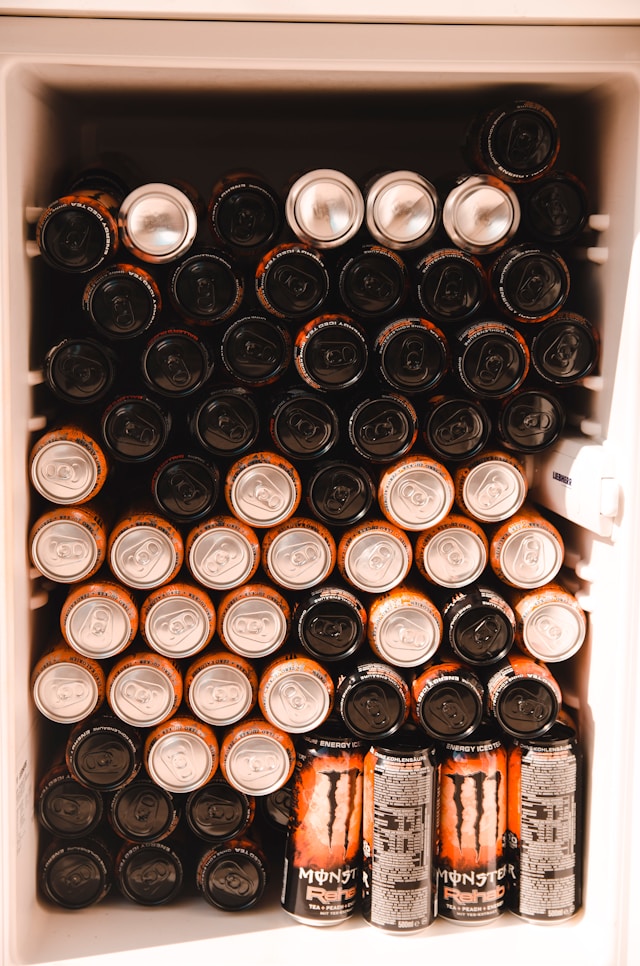
Gaming Editor Louis Wright writes a comprehensive guide on energy drinks, and warns of the negative effects of overconsumption
As highly caffeinated stimulants, energy drinks make for some of the greatest pick-me-ups on the market. If the 9 am is too much, Red Bull’s awaiting embrace is there to keep you going through the arduous tones of a lecturer’s PowerPoint slides, but this comes at a steep price. The average can of Monster energy contains 160mg of caffeine which combined with the average 6 hour half life of caffeine in healthy adults, means that 6 hours after consuming a can of Monster, 80mg of caffeine will remain in the system of the consumer.
“The delicious golden nectar that is a crisp and cool can…”
That is to say, while the delicious golden nectar that is a crisp cool can of Monster Mango Loco may be the most satisfying beverage on a hot summer day in Selly Park, if you are looking to get a good night’s sleep that evening, it best be consumed long before midday. Having caffeine in the system provably increases sleep latency (how long it takes to go to sleep) and reduces hours slept. Therefore while an energy drink may make it feel as though sleep has been had it impacts sleep health. As the old idiom goes “what comes around goes around” and in this case what comes around is replacing sleep and what goes around is sleep deprivation (if the analogy wasn’t too clear).
Other health risks exist as a result of energy drink consumption. Due to the amounts of caffeine and glucose contained within many drinks, drinking energy drinks sees an increase in heart rate and blood glucose levels. In the long term these can result in long-term health conditions like heart failure and diabetes. Likewise, dehydration is another symptom of consumption, that over extended periods of time can impact kidney and liver function. In particular, kidney stones are prevalent due to not only extended periods of dehydration but also the high sugar levels of the beverages
In my personal experience, I have been necking cans of Monster Energy since the ripe age of 14 (don’t worry the age restriction didn’t come to law until I was 18). The sweet golden nectar of a can from the fridge of my local Costcutter has gotten me through tough GCSE revision sessions and late-night library trips. However, like the most toxic of friendships, the countless gallons of sugary substance passing my lips had been poisoning my insides, to the point of being a contributor to my hospitalisation with a stomach ulcer at the end of 2023. For the sake of my health (and more importantly my relationship) Monster Energy and its cousins Boost, Red Bull and Relentless have been axed from my diet.
“I send my warning to the world…”
While a hard change to make, it is one that was worthwhile for the improvements I have seen to my health since have been tremendous. The lack of sugar entering my system has improved my skin, I can actually sleep as well (I am no longer an ‘eepy boy’ as TikTok would say). More importantly, waking up is easier, as I am not heavily reliant on caffeine to get me going.
As the research and my personal experience say, energy drinks are not great for the body. So while I sit here, waiting for my inevitable kidney stones to develop, I send my warning to the world: it’s not a fantastic idea to get horribly addicted to caffeine at age 14.
Read more Food & Drink articles here:

Comments